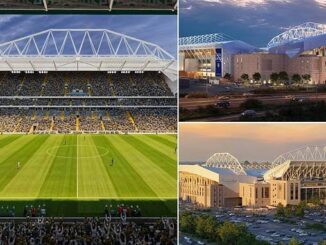
The project, driven by the club’s owners 49ers Enterprises, aims not only to expand Elland Road to a 50,000+ capacity stadium but also to create a vibrant, fan-centred district around it—mirroring Dortmund’s renowned Signal Iduna Park and its surrounding community hub.
The redevelopment vision goes far beyond football. It includes commercial and retail spaces, hotels, entertainment venues, green spaces, and improved transport infrastructure. The goal is to establish a year-round destination that integrates the stadium with the local community, much like Dortmund has achieved in Germany with its dynamic fan culture and multifunctional stadium district.
Taking cues from Dortmund’s success, Leeds United want to enhance the matchday experience while also building a self-sustaining ecosystem that contributes to the club’s financial stability. Plans feature fan parks, themed restaurants, club museums, and spaces celebrating the city’s identity and sporting history, making the area a cultural and economic asset for Leeds.
Club officials believe that by embracing a model like Dortmund’s—where football, community, and business intersect—they can help propel Leeds United to the next level, both on and off the pitch. The regeneration is expected to create thousands of jobs and attract significant investment, further boosting the city’s economy.
Discussions with Leeds City Council and other stakeholders are ongoing, with phased construction hoped to begin in the near future, subject to planning approvals. If realised, the project would mark a historic transformation for Elland Road, establishing it as a modern European football destination rooted in local pride and global ambition.



Be the first to comment